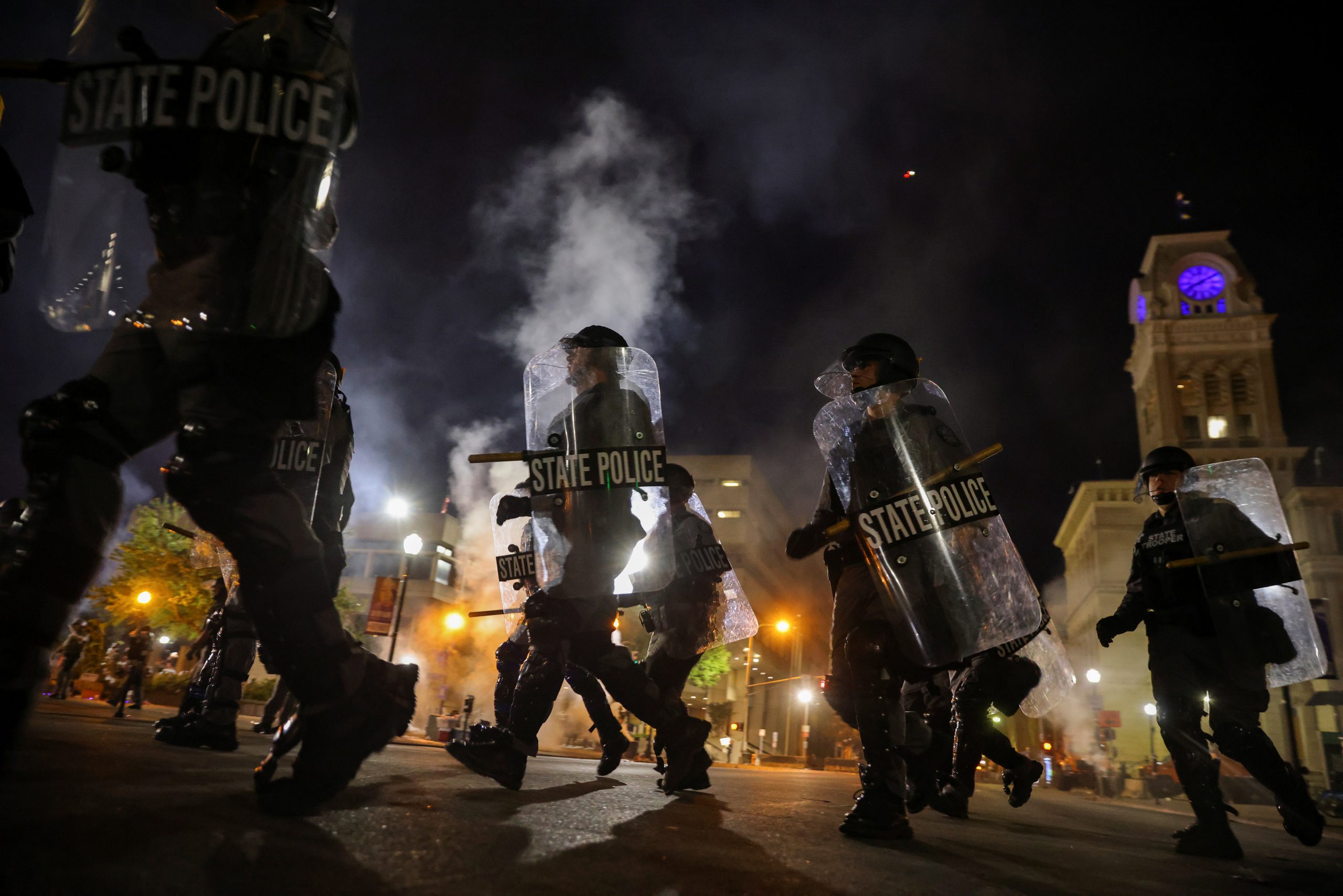Louisville on Thursday braced for a second night of protests after two police officers were shot during demonstrations over a decision by a grand jury to bring no direct charges against policemen in the fatal shooting of Breonna Taylor.
The protests erupted in the Kentucky city on Wednesday immediately after the state attorney general announced that none of the three white officers involved in a deadly, botched raid on Taylor’s apartment would have to face charges of causing the Black woman’s death. One officer was indicted on charges of endangering her neighbors.
Civil rights activists decried the outcome as a miscarriage of justice in keeping with a nationwide pattern of unwarranted police violence against minorities.
The demonstration that started peacefully on Wednesday night turned violent after dark when the two officers were shot and wounded. Police arrested 127 people in Louisville.
Clashes between police and demonstrators on Louisville’s streets were the latest incident in a wave of protests that gripped the country over the summer following the deaths of several African Americans in the hands of police officers in incidents caught on cellphone video.
On Wednesday, protests also flared up in New York, Los Angeles, Atlanta and Seattle. In Portland, Oregon, the scene of more than 100 straight nights of protests, police once again declared a riot on Wednesday in the unrest that followed the grand jury decision.
Leaders of the Louisville anti-racism protesters have yet to announce plans for Thursday night, but typically they give little advance notice of their plans. In New York, organizers have already scheduled two Breonna Taylor events for Thursday afternoon in Brooklyn.
With people already casting ballots in early voting for the Nov. 3 U.S. presidential election, the demonstrations have drawn not only peaceful anti-racism protests but also a volatile mix of armed, right-wing militias and anarchists.
Demonstrators led by movements such as Black Lives Matter have renewed their calls for racial justice and against excessive police force since the May 25 death of George Floyd after a Minneapolis police officer knelt on his neck.
Taylor, 26, a Black emergency medical technician and aspiring nurse, was killed in front of her armed boyfriend after the three officers forced their way into her home with a search warrant in a drug trafficking investigation.
Taylor’s case drew little national attention at first but was thrust into prominence after Floyd’s death and with the help of celebrities such as Hollywood stars and basketball great LeBron James.
Her death became a symbol, and her image a familiar sight, during months of daily protests.
The grand jury did not bring any charges for the six police bullets that struck Taylor, but instead for stray shots that hit the neighboring apartment.
Kentucky Attorney General Daniel Cameron said the panel declined to bring any charges against two of the three policemen who fired into Taylor’s apartment because their actions were found to have been justified under Kentucky law as they returned fire after Taylor’s boyfriend shot at them, wounding one of them.
Following the grand jury announcement, protesters immediately took to the streets of Kentucky’s largest city and marched for hours chanting, “No lives matter until Black lives matter,” amid sporadic clashes with police in riot gear.
Several gunshots rang out as heavily armed police closed in on a throng of protesters at nightfall, ordering the crowd to disperse about a half hour before a 9 p.m. curfew was due to go into effect.
One suspect was arrested in connection with the shooting of the two officers, who were in stable condition – one undergoing surgery – with non-life-threatening injuries, interim Louisville Metropolitan Police chief Robert Schroeder told reporters.
The Federal Bureau of Investigation in Louisville issued a plea for the public’s help on Thursday, asking for any videos related the shooting of the two officers.
Police on Thursday said arrests were made after some protesters damaged businesses, jumped on a police vehicle, damaged public works trucks serving as barricades, set garbage cans on fire, and defied orders to disperse from what police determined were unlawful assemblies.
At least three stores were looted, police said.
(Reporting by Bryan Woolston in Louisville; Writing by Daniel Trotta; Editing by Alistair Bell)

























 Continue with Google
Continue with Google